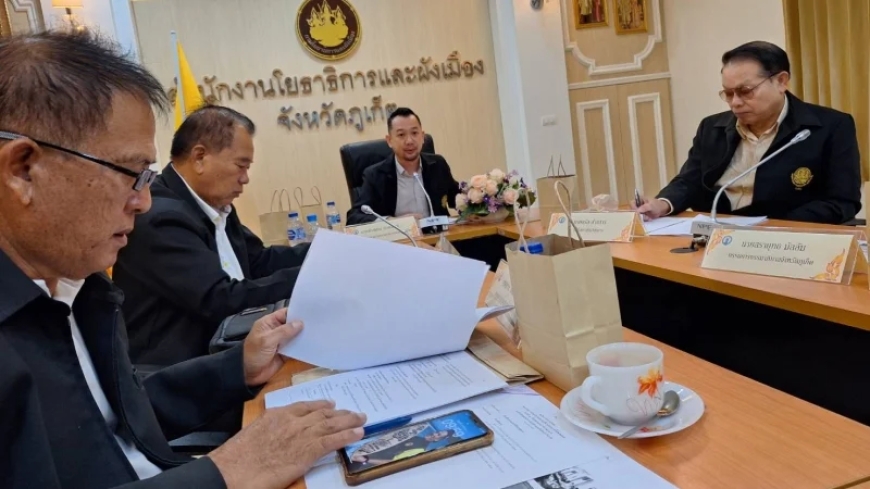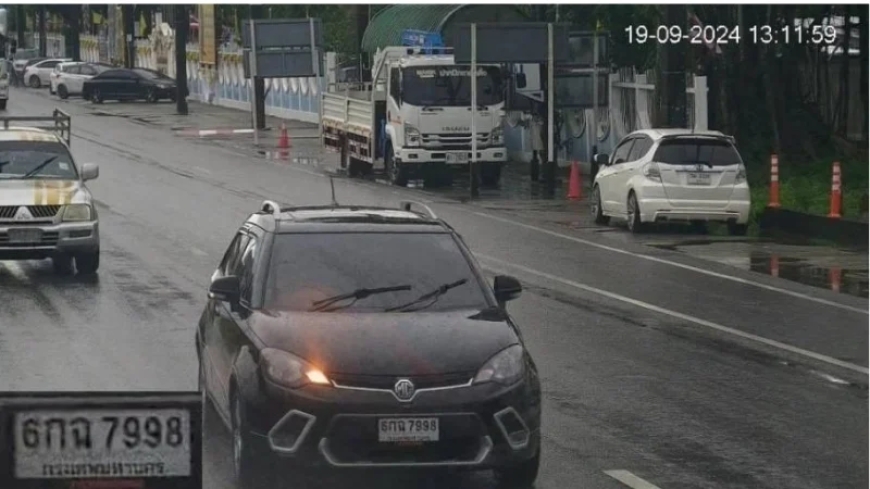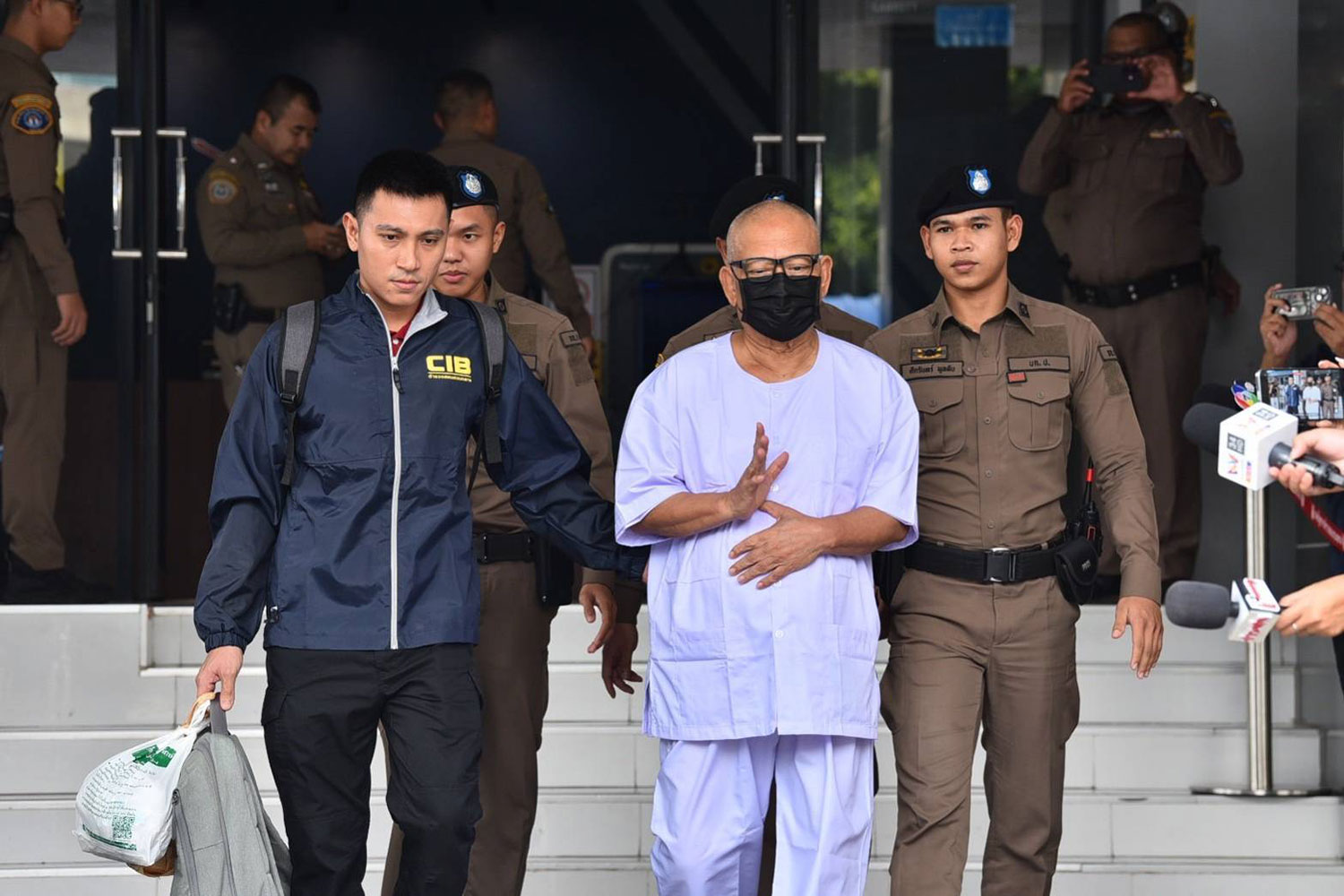The Phuket Provincial Government Committee held a meeting yesterday (September 13) to monitor six major flood control projects to address flooding issues in central Phuket Town and Thalang district.
The meeting was chaired by committee vice-chairman Pilaphich Oncharoen and held at the Phuket Provincial Public Works and Urban Planning Department.
Key officials in attendance included Phuket Provincial Public Works and Urban Planning Department director Chaluwit Sathianrangsrit.
According to the official report of the meeting, the committee focused on several flood prevention construction projects.
The projects discussed included building two retaining walls, one on each side, along Khlong Bang Yai to protect the Old Town, with each retaining wall budgeted at 25 million baht. Other projects include flood control measures in Khlong Ta Klang city (12 million baht), Chan Phan Rang city in tambon Srisongthong (18 million baht), Khlong Ta Lua city (11 million baht) and the construction of an earth dam in Khlong Thalang, Bo district. Kruat (22 million baht).
During the meeting, the committee stressed the importance of transparency in all undertakings, with a particular focus on the Khlong Bang Yai retaining wall project.
The project, once completed, is expected to provide a long-term solution to ongoing flooding in Phuket’s Old Town, the report concluded.







